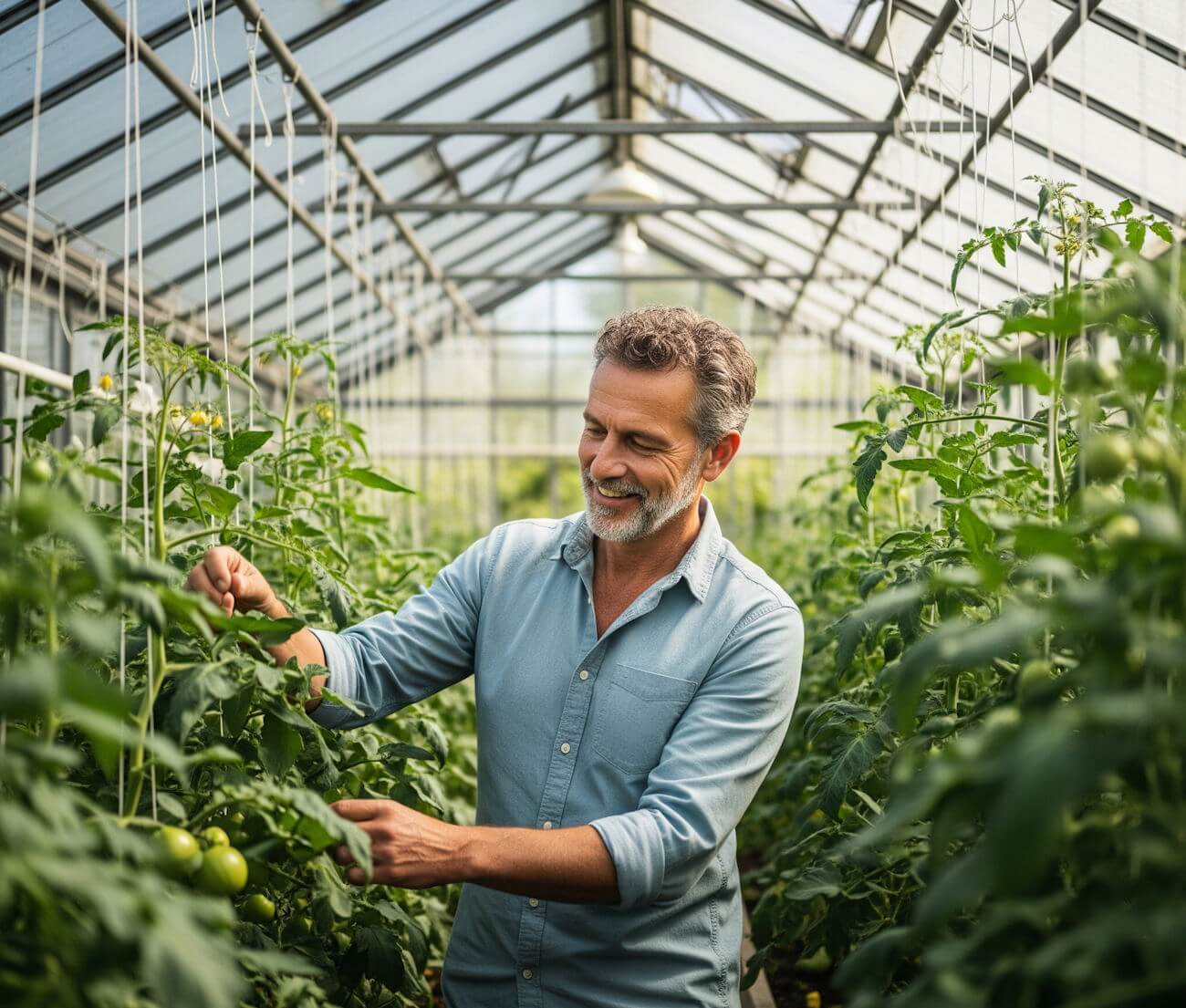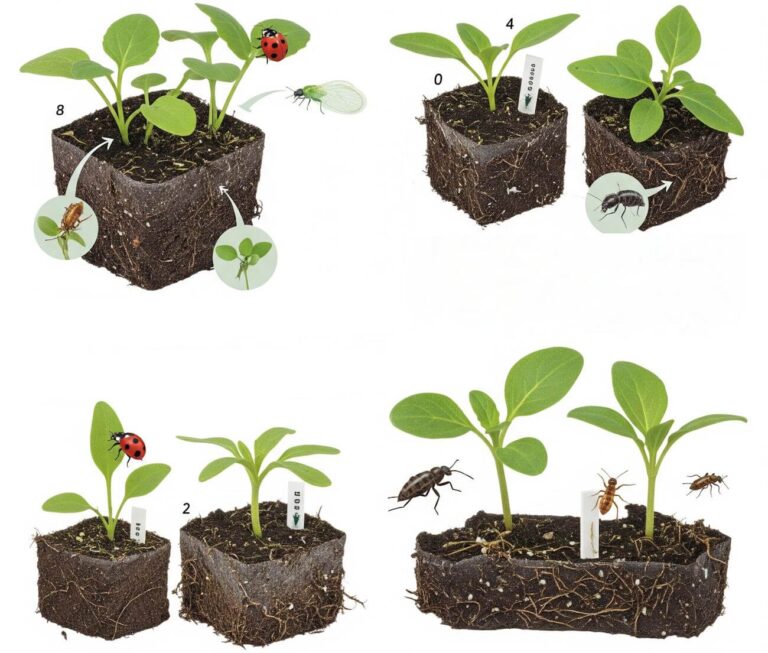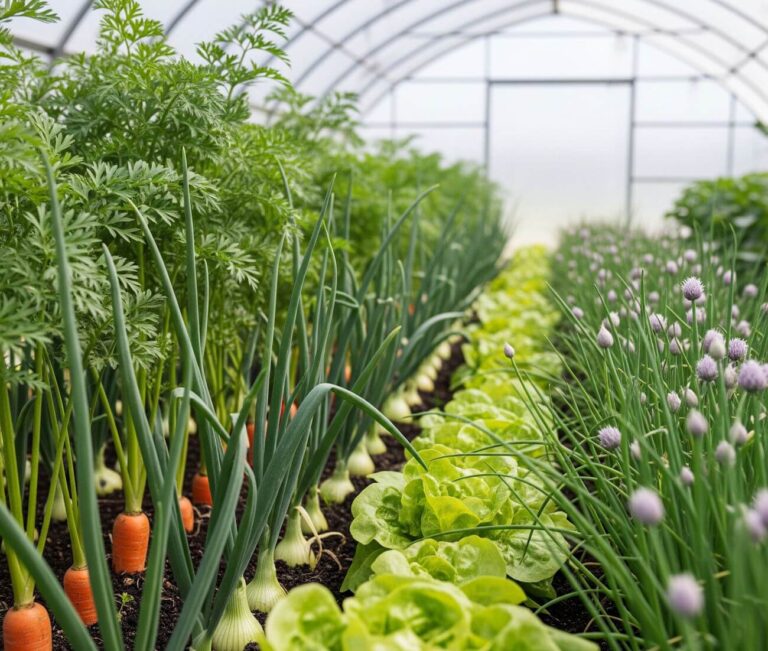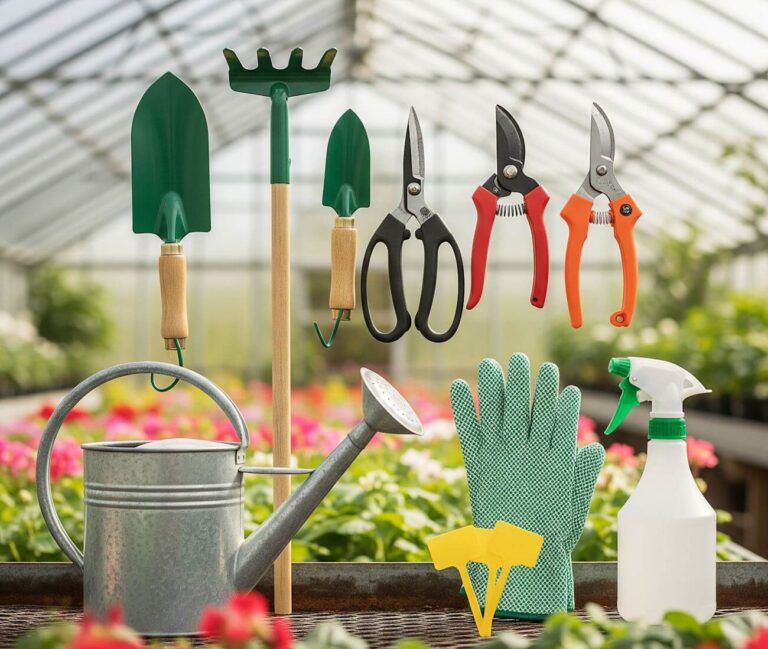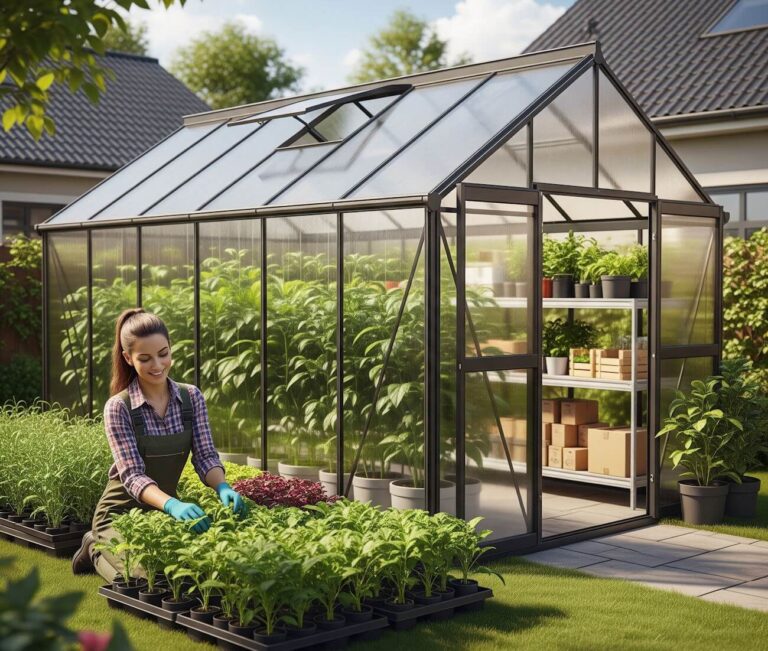Greenhouse gardening is an innovative approach to cultivating plants within a controlled environment, utilizing structures specifically designed to regulate temperature, humidity, and light conditions. Unlike traditional outdoor gardening, which is subject to the whims of weather patterns and seasonal changes, greenhouse gardening offers a stable setting that allows for year-round planting and harvesting. This method serves not only as a means to grow a variety of plants but also enhances the likelihood of successful yields regardless of external conditions.
The popularity of greenhouse gardening has surged in recent years, driven by a growing interest in sustainable practices, local food production, and efficient use of space. As urban living becomes more prevalent and the demand for fresh produce increases, more individuals and communities are turning to greenhouse gardening as a solution. These enclosed structures allow for the cultivation of fruits, vegetables, herbs, and ornamental plants, making them a versatile option for amateur gardeners and seasoned horticulturists alike.
Common types of plants grown in greenhouses include tomatoes, peppers, cucumbers, and various herbs, which thrive in the controlled environment. Additionally, many flowers and ornamental plants can be nurtured within a greenhouse, allowing for extended growing seasons and enhanced visual beauty. Greenhouse gardening also accommodates variations in growing techniques, such as hydroponics and aquaponics, enabling gardeners to experiment with and adopt modern growing methods. This flexibility not only promotes biodiversity but also offers the distinct advantage of fostering emotional well-being and mental health benefits, which are explored in later sections of this post.
Understanding Mental Health and Its Importance
Mental health encompasses a person’s emotional, psychological, and social well-being, playing a crucial role in how individuals think, feel, and act. It is a complex domain influenced by a variety of factors including genetics, environment, and life experiences. Defining mental health goes beyond the absence of mental disorders; it involves maintaining a state of well-being where individuals can cope with stress, relate to others, and make informed decisions. Components of mental health include emotional stability, social connections, and resilience, all contributing to overall life satisfaction.
In today’s fast-paced world, mental health issues have become increasingly prevalent. Conditions such as anxiety disorders, depression, and stress-related illnesses affect millions globally, indicating a pressing need for effective coping strategies. This growing recognition of mental health issues underscores the importance of prioritizing mental well-being as part of a broader health strategy. Effective coping mechanisms are essential, helping individuals manage the challenges posed by their mental health conditions and leading to improved resilience and quality of life.
The significance of mental health extends to various aspects of life, including interpersonal relationships, professional performance, and personal fulfillment. Poor mental health has far-reaching consequences, not only impacting individual well-being but also affecting family dynamics, workplace productivity, and community health. This interconnectedness highlights the necessity for a proactive approach towards mental health, encouraging preventive measures and early intervention strategies.
As an integral aspect of overall health, mental well-being warrants attention and understanding. This emphasis on mental health encourages individuals to engage in practices that promote not only their emotional and psychological health but also their physical well-being, further reinforcing the importance of cultivating a healthy and supportive environment.
How Gardening Positively Affects Mental Health
Gardening has long been recognized not just as a hobby, but as a therapeutic activity capable of fostering mental well-being. Numerous studies have highlighted the myriad of positive effects gardening can have on mental health, ranging from stress reduction to the alleviation of symptoms associated with anxiety and depression. Engaging with plants and tending to their growth offers a unique connection to nature, which can significantly enhance emotional resilience.
One of the most compelling findings in the realm of mental health and gardening is the reduction in levels of cortisol, the stress hormone. Research indicates that spending time in a garden setting can significantly lower stress levels, thereby promoting a greater sense of calm and relaxation. The act of nurturing plants can create a sense of purpose, encouraging individuals to immerse themselves mindfully in the present moment. This mindful engagement often translates to a feeling of accomplishment and fulfillment, which can combat feelings of emptiness and depression.
Furthermore, the physical activity involved in gardening also contributes to improved mental health. The combination of physical exertion and exposure to sunlight increases endorphin levels in the body, leading to enhanced mood and reduced anxiety. As individuals participate in gardening, they not only cultivate plants but also cultivate a sense of community, often sharing bonds with fellow gardening enthusiasts. This social interaction can decrease feelings of isolation, further promoting psychological well-being.
Overall, the therapeutic aspects of gardening provide a holistic approach to enhancing mental health. By reducing stress, alleviating anxiety and depression symptoms, and fostering a sense of fulfillment, gardening emerges as a powerful tool in promoting mental well-being. As interest in mental health continues to grow, it becomes increasingly important to recognize the simple yet profound benefits that gardening can offer.
Benefits of Greenhouse Gardening for Mental Well-being
Greenhouse gardening offers a myriad of mental health benefits, owing largely to its unique features that create an optimal gardening environment. One of the primary advantages is the controlled atmosphere that greenhouses provide. By maintaining specific temperature and humidity levels, gardeners can mitigate stress and anxiety commonly associated with outdoor gardening, where unpredictable weather and pests can disrupt one’s efforts. This stability allows for a more enjoyable and relaxing gardening experience, enhancing overall mental well-being.
Moreover, greenhouse gardening facilitates year-round gardening opportunities. The ability to grow plants irrespective of the season can significantly uplift mood and mental state. During winter months when outdoor gardening may not be feasible, a greenhouse allows individuals to engage in an enjoyable hobby, thereby combating seasonal affective disorder (SAD) and maintaining a consistent connection to nature. The presence of plants and their care can serve as a beautiful counterbalance to the stressors of daily life, providing a fulfilling routine that promotes mental resilience.
Additionally, greenhouse gardening fosters creative expression, allowing individuals to experiment with various plants, colors, and layouts. This creative process can be therapeutic, as it encourages mindfulness and focus. Engaging in a hands-on activity such as designing plant arrangements or nurturing seedlings can divert attention from negative thoughts and promote a positive mental state. The satisfaction derived from watching one’s plants thrive serves as a powerful motivator, further enhancing emotional well-being.
In essence, the benefits of greenhouse gardening for mental health are substantial, offering a unique blend of stability, year-round engagement, and creative outlet. Such advantages contribute to improved mood and a deeper sense of relaxation, making this form of gardening an ideal pursuit for enhancing mental well-being.
Connection to Nature: A Key Element
Engaging with nature has long been recognized for its profound impact on mental health, and greenhouse gardening offers a unique avenue to foster this connection. The simple act of nurturing plants within a controlled environment allows individuals to immerse themselves in a green sanctuary, which can significantly enhance well-being. Studies have indicated that spending time in natural surroundings can reduce stress levels, promote relaxation, and elevate mood. Therefore, greenhouse gardening serves not only as a form of horticultural activity but also as a therapeutic practice.
The calming effects of plants play a pivotal role in their therapeutic potential. When individuals engage in activities such as watering, pruning, or planting, they often find themselves absorbed in the moment, which can lead to a meditative state. This process of attentively caring for plants can distract from daily stressors and worries, offering a reprieve from the fast-paced demands of modern life. Such mindful interaction with nature can provide an emotional release and enhance mental clarity.
Moreover, being within a green space has been found to provoke positive physiological responses in the body. For instance, exposure to plants and greenery can lower blood pressure and heart rate, which in turn alleviates feelings of anxiety and restlessness. The sensory experiences associated with greenhouse gardening—the sight of lush foliage, the scent of rich soil, and the tactile engagement with various plant textures—all contribute to a heightened sense of peace and tranquility. Engaging with this natural environment cultivates not only a deeper appreciation for the ecosystem but also aids in emotional resilience, promoting a balanced and healthier mental state.
Community and Social Interaction through Greenhouse Gardening
Greenhouse gardening serves as an inviting platform for fostering community engagement and social interaction. Within the shelter of a greenhouse, individuals are often drawn together through a shared passion for horticulture. This collaborative environment encourages not only the cultivation of plants but also the development of friendships and support networks, which are particularly beneficial for mental health.
Participating in greenhouse gardening allows individuals to connect with like-minded people who share similar interests. This sense of belonging can significantly enhance social well-being, as it mitigates feelings of loneliness and isolation. Many people are unaware that gardening can act as a catalyst for building meaningful relationships. By working side-by-side, individuals can engage in conversations, exchange gardening tips, and share resources, which ultimately strengthens communal ties.
Moreover, greenhouse gardening often involves group activities, such as planting, harvesting, or organizing community events. These types of collaborative efforts not only facilitate social interactions but also promote teamwork and collective responsibility. By coming together to nurture the plants, participants foster a sense of achievement and community pride, contributing positively to their overall mental health.
In a greenhouse environment, members of the community can also support one another emotionally. Sharing experiences, challenges, and successes in gardening cultivates a supportive atmosphere that enhances social well-being. Research indicates that social networks are crucial for mental resilience, as they provide emotional support during stressful times. The communal aspect of greenhouse gardening thus serves to reinforce bonds that are integral to mental health stability.
In conclusion, engaging in greenhouse gardening offers a wealth of opportunities for social interaction and community building. By bringing people together through a shared passion, these spaces help mitigate social isolation and improve mental health outcomes, underscoring the value of communal gardening initiatives.
Mindfulness and Meditation in Greenhouse Gardening
Engaging in greenhouse gardening can serve as an effective practice for enhancing mindfulness and meditation. The repetitive tasks associated with gardening, such as planting seeds, watering plants, and tending to soil, often create a natural rhythm that can lead individuals into a meditative state. This rhythm allows gardeners to immerse themselves fully in the moment, cultivating a heightened awareness of their surroundings and actions. As they perform these tasks, they may experience a sense of tranquility, reducing overwhelming thoughts and promoting mental clarity.
Research suggests that mindfulness, the practice of being fully present and engaged in the moment, can significantly reduce stress and anxiety levels. By focusing on the immediate sensations of gardening—the texture of the soil, the colors of the plants, or the sounds of nature—gardeners can find a sense of grounding. This connection to the present can serve as an escape from the pressures of daily life, facilitating a more peaceful state of mind. Moreover, the act of nurturing living things can imbue a sense of purpose and accomplishment.
Additionally, meditation practices can be easily incorporated into greenhouse gardening. For instance, one might practice deep breathing while tending to plants, using the time as an opportunity to center their thoughts. Visualizing the growth of the plants as a metaphor for personal growth can enhance the emotional benefits of gardening. The experience becomes not merely about cultivating plants but also about cultivating one’s mental health. In this manner, greenhouse gardening transforms from a simple hobby into a therapeutic exercise in mindfulness and meditation, providing holistic benefits that extend far beyond the confines of the garden.
Practical Tips for Starting Greenhouse Gardening
Embarking on a journey into greenhouse gardening can be a fulfilling endeavor that not only enriches one’s living space but also significantly supports mental health. Selecting the right greenhouse is the first crucial step in this process. Consider factors such as size, materials, and location to ensure that your greenhouse meets your specific needs. For beginners, a smaller, prefabricated greenhouse may be advisable, allowing for easier management and maintenance while still providing the benefits of gardening.
Once you have chosen your greenhouse, the next step is to select the plants that will occupy it. Opt for a variety of species that resonate with your personal interests and align with your climate conditions. It is beneficial to select plants known for their resilience and low maintenance, such as herbs, succulents, or flowering annuals. This will ensure that your gardening experience remains enjoyable and rewarding, rather than overwhelming. Additionally, incorporating varied plants promotes biodiversity, which can enhance your greenhouse ecosystem and further contribute to your emotional well-being.
Creating a supportive environment within your greenhouse is essential for fostering both plant growth and personal wellness. Consider installing proper ventilation systems and heating or cooling equipment to maintain suitable temperatures for your chosen plants. Furthermore, organizing your greenhouse in a way that allows easy access to your plants can significantly enhance your gardening experience. Allow for pathways that enable you to navigate easily while caring for your plants. Together, these efforts create a tranquil space, one that can help alleviate stress, encourage mindfulness, and promote a deeper appreciation for nature.
Starting greenhouse gardening requires thoughtful planning and consideration, but the mental health benefits it offers make every effort worthwhile. Through creating a nurturing environment and selecting suitable plants, you can foster a haven that aids in enhancing your overall well-being.
Conclusion: Embrace Greenhouse Gardening for Mental Health
Greenhouse gardening serves as an effective avenue for enhancing mental health, merging the restorative qualities of nature with the therapeutic process of cultivating plants. Throughout this discussion, we have explored various mental health benefits associated with engaging in greenhouse gardening, emphasizing the positive impacts on emotional well-being and stress reduction. The act of nurturing plants not only instills a sense of purpose but also fosters creativity and mindfulness, allowing individuals to escape from their daily stresses.
One of the key advantages of this practice is its ability to cultivate a sense of community. Gardening in a greenhouse can often involve collaborative efforts, whether through sharing resources with fellow gardeners or participating in community gardening initiatives. This interaction contributes to improved social connections, combating feelings of isolation that can sometimes be associated with mental health issues.
Moreover, greenhouse gardening promotes physical activity, leading to the release of endorphins that inherently improve mood. The rhythmic tasks involved in gardening can serve as a form of natural exercise, further enhancing overall well-being. The sensory experience tied to working with plants—such as the aroma of soil, the vibrant colors of flowers, and the texture of leaves—also contributes to an uplifting environment that can alleviate symptoms of anxiety and depression.
As we conclude our exploration of the mental health benefits tied to greenhouse gardening, it is imperative to consider integrating this enriching practice into your life. Embracing the art of gardening not only offers you the opportunity to enjoy the fruits of your labor, but also provides a healing space where mindfulness can flourish. By starting your gardening adventure today, you prioritize your mental well-being while connecting with nature, promoting a healthier, more fulfilling lifestyle.



